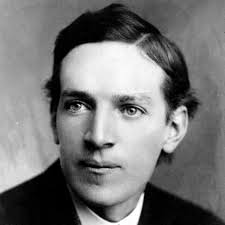The Jungle Page #26
The Jungle is a 1906 novel by the American journalist and novelist Upton Sinclair. Sinclair wrote the novel to portray the harsh conditions and exploited lives of immigrants in the United States in Chicago and similar industrialized cities.
So Jurgis said that he understood it; and yet it was really pitiful, for the struggle was so unfair--some had so much the advantage! Here he was, for instance, vowing upon his knees that he would save Ona from harm, and only a week later she was suffering atrociously, and from the blow of an enemy that he could not possibly have thwarted. There came a day when the rain fell in torrents; and it being December, to be wet with it and have to sit all day long in one of the cold cellars of Brown's was no laughing matter. Ona was a working girl, and did not own waterproofs and such things, and so Jurgis took her and put her on the streetcar. Now it chanced that this car line was owned by gentlemen who were trying to make money. And the city having passed an ordinance requiring them to give transfers, they had fallen into a rage; and first they had made a rule that transfers could be had only when the fare was paid; and later, growing still uglier, they had made another--that the passenger must ask for the transfer, the conductor was not allowed to offer it. Now Ona had been told that she was to get a transfer; but it was not her way to speak up, and so she merely waited, following the conductor about with her eyes, wondering when he would think of her. When at last the time came for her to get out, she asked for the transfer, and was refused. Not knowing what to make of this, she began to argue with the conductor, in a language of which he did not understand a word. After warning her several times, he pulled the bell and the car went on--at which Ona burst into tears. At the next corner she got out, of course; and as she had no more money, she had to walk the rest of the way to the yards in the pouring rain. And so all day long she sat shivering, and came home at night with her teeth chattering and pains in her head and back. For two weeks afterward she suffered cruelly--and yet every day she had to drag herself to her work. The forewoman was especially severe with Ona, because she believed that she was obstinate on account of having been refused a holiday the day after her wedding. Ona had an idea that her “forelady” did not like to have her girls marry--perhaps because she was old and ugly and unmarried herself. There were many such dangers, in which the odds were all against them. Their children were not as well as they had been at home; but how could they know that there was no sewer to their house, and that the drainage of fifteen years was in a cesspool under it? How could they know that the pale-blue milk that they bought around the corner was watered, and doctored with formaldehyde besides? When the children were not well at home, Teta Elzbieta would gather herbs and cure them; now she was obliged to go to the drugstore and buy extracts--and how was she to know that they were all adulterated? How could they find out that their tea and coffee, their sugar and flour, had been doctored; that their canned peas had been colored with copper salts, and their fruit jams with aniline dyes? And even if they had known it, what good would it have done them, since there was no place within miles of them where any other sort was to be had? The bitter winter was coming, and they had to save money to get more clothing and bedding; but it would not matter in the least how much they saved, they could not get anything to keep them warm. All the clothing that was to be had in the stores was made of cotton and shoddy, which is made by tearing old clothes to pieces and weaving the fiber again. If they paid higher prices, they might get frills and fanciness, or be cheated; but genuine quality they could not obtain for love nor money. A young friend of Szedvilas', recently come from abroad, had become a clerk in a store on Ashland Avenue, and he narrated with glee a trick that had been played upon an unsuspecting countryman by his boss. The customer had desired to purchase an alarm clock, and the boss had shown him two exactly similar, telling him that the price of one was a dollar and of the other a dollar seventy-five. Upon being asked what the difference was, the man had wound up the first halfway and the second all the way, and showed the customer how the latter made twice as much noise; upon which the customer remarked that he was a sound sleeper, and had better take the more expensive clock! There is a poet who sings that “Deeper their heart grows and nobler their bearing, Whose youth in the fires of anguish hath died.” But it was not likely that he had reference to the kind of anguish that comes with destitution, that is so endlessly bitter and cruel, and yet so sordid and petty, so ugly, so humiliating--unredeemed by the slightest touch of dignity or even of pathos. It is a kind of anguish that poets have not commonly dealt with; its very words are not admitted into the vocabulary of poets--the details of it cannot be told in polite society at all. How, for instance, could any one expect to excite sympathy among lovers of good literature by telling how a family found their home alive with vermin, and of all the suffering and inconvenience and humiliation they were put to, and the hard-earned money they spent, in efforts to get rid of them? After long hesitation and uncertainty they paid twenty-five cents for a big package of insect powder--a patent preparation which chanced to be ninety-five per cent gypsum, a harmless earth which had cost about two cents to prepare. Of course it had not the least effect, except upon a few roaches which had the misfortune to drink water after eating it, and so got their inwards set in a coating of plaster of Paris. The family, having no idea of this, and no more money to throw away, had nothing to do but give up and submit to one more misery for the rest of their days. Then there was old Antanas. The winter came, and the place where he worked was a dark, unheated cellar, where you could see your breath all day, and where your fingers sometimes tried to freeze. So the old man's cough grew every day worse, until there came a time when it hardly ever stopped, and he had become a nuisance about the place. Then, too, a still more dreadful thing happened to him; he worked in a place where his feet were soaked in chemicals, and it was not long before they had eaten through his new boots. Then sores began to break out on his feet, and grow worse and worse. Whether it was that his blood was bad, or there had been a cut, he could not say; but he asked the men about it, and learned that it was a regular thing--it was the saltpeter. Every one felt it, sooner or later, and then it was all up with him, at least for that sort of work. The sores would never heal--in the end his toes would drop off, if he did not quit. Yet old Antanas would not quit; he saw the suffering of his family, and he remembered what it had cost him to get a job. So he tied up his feet, and went on limping about and coughing, until at last he fell to pieces, all at once and in a heap, like the One-Horse Shay. They carried him to a dry place and laid him on the floor, and that night two of the men helped him home. The poor old man was put to bed, and though he tried it every morning until the end, he never could get up again. He would lie there and cough and cough, day and night, wasting away to a mere skeleton. There came a time when there was so little flesh on him that the bones began to poke through--which was a horrible thing to see or even to think of. And one night he had a choking fit, and a little river of blood came out of his mouth. The family, wild with terror, sent for a doctor, and paid half a dollar to be told that there was nothing to be done. Mercifully the doctor did not say this so that the old man could hear, for he was still clinging to the faith that tomorrow or next day he would be better, and could go back to his job. The company had sent word to him that they would keep it for him--or rather Jurgis had bribed one of the men to come one Sunday afternoon and say they had. Dede Antanas continued to believe it, while three more hemorrhages came; and then at last one morning they found him stiff and cold. Things were not going well with them then, and though it nearly broke Teta Elzbieta's heart, they were forced to dispense with nearly all the decencies of a funeral; they had only a hearse, and one hack for the women and children; and Jurgis, who was learning things fast, spent all Sunday making a bargain for these, and he made it in the presence of witnesses, so that when the man tried to charge him for all sorts of incidentals, he did not have to pay. For twenty-five years old Antanas Rudkus and his son had dwelt in the forest together, and it was hard to part in this way; perhaps it was just as well that Jurgis had to give all his attention to the task of having a funeral without being bankrupted, and so had no time to indulge in memories and grief.
Translation
Translate and read this book in other languages:
Select another language:
- - Select -
- 简体中文 (Chinese - Simplified)
- 繁體中文 (Chinese - Traditional)
- Español (Spanish)
- Esperanto (Esperanto)
- 日本語 (Japanese)
- Português (Portuguese)
- Deutsch (German)
- العربية (Arabic)
- Français (French)
- Русский (Russian)
- ಕನ್ನಡ (Kannada)
- 한국어 (Korean)
- עברית (Hebrew)
- Gaeilge (Irish)
- Українська (Ukrainian)
- اردو (Urdu)
- Magyar (Hungarian)
- मानक हिन्दी (Hindi)
- Indonesia (Indonesian)
- Italiano (Italian)
- தமிழ் (Tamil)
- Türkçe (Turkish)
- తెలుగు (Telugu)
- ภาษาไทย (Thai)
- Tiếng Việt (Vietnamese)
- Čeština (Czech)
- Polski (Polish)
- Bahasa Indonesia (Indonesian)
- Românește (Romanian)
- Nederlands (Dutch)
- Ελληνικά (Greek)
- Latinum (Latin)
- Svenska (Swedish)
- Dansk (Danish)
- Suomi (Finnish)
- فارسی (Persian)
- ייִדיש (Yiddish)
- հայերեն (Armenian)
- Norsk (Norwegian)
- English (English)
Citation
Use the citation below to add this book to your bibliography:
Style:MLAChicagoAPA
"The Jungle Books." Literature.com. STANDS4 LLC, 2025. Web. 9 Mar. 2025. <https://www.literature.com/book/the_jungle_272>.








Discuss this The Jungle book with the community:
Report Comment
We're doing our best to make sure our content is useful, accurate and safe.
If by any chance you spot an inappropriate comment while navigating through our website please use this form to let us know, and we'll take care of it shortly.
Attachment
You need to be logged in to favorite.
Log In